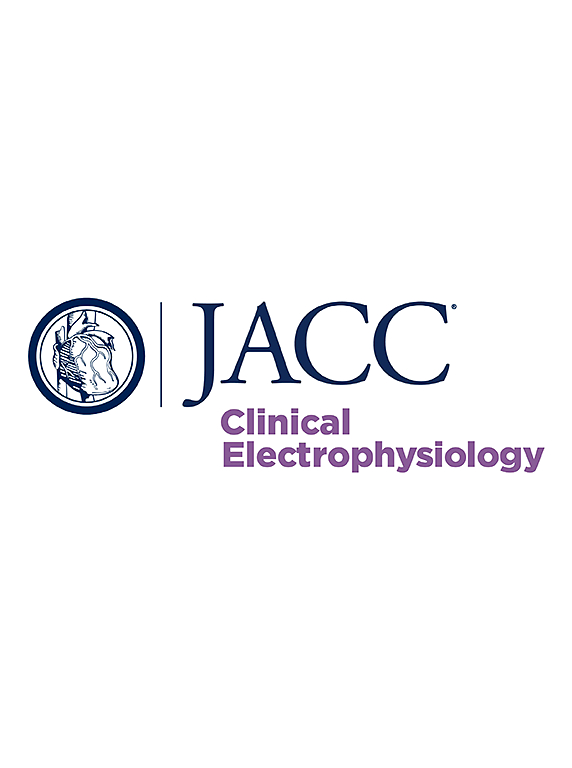Cardiac MRI Oversampling in Heart Digital Twins Improves Preprocedure Ventricular Tachycardia Identification in Postinfarction Patients
IF 8
1区 医学
Q1 CARDIAC & CARDIOVASCULAR SYSTEMS
引用次数: 0
Abstract
Background
Ventricular tachycardia (VT), which can lead to sudden cardiac death, occurs frequently in patients after myocardial infarction. Radiofrequency catheter ablation (RFA) is a modestly effective treatment of VT, but it has limitations and risks. Cardiac magnetic resonance (CMR)–based heart digital twins have emerged as a useful tool for identifying VT circuits for RFA treatment planning. However, the CMR resolution used to reconstruct these digital twins may impact VT circuit predictions, leading to incorrect RFA treatment planning.
Objectives
This study sought to predict RFA targets in the arrhythmogenic substrate using heart digital twins reconstructed from both clinical and high-resolution 2-dimensional CMR datasets and compare the predictions.
Methods
High-resolution (1.35 × 1.35 × 3 mm), or oversampled resolution (Ov-Res), short-axis late gadolinium–enhanced CMR was acquired by combining 2 subsequent clinical resolution (Clin-Res) (1.35 × 1.35 × 6 mm) short-axis late gadolinium–enhanced CMR scans from 6 post–myocardial infarction patients undergoing VT ablation and used to reconstruct a total of 3 digital twins (1 Ov-Res, 2 Clin-Res) for each patient. Rapid pacing was used to assess VT circuits and identify the optimal ablation targets in each digital twin. VT circuits predicted by the digital twins were compared with intraprocedural electroanatomic mapping data and used to identify emergent VT.
Results
The Ov-Res digital twins reduced partial volume effects and better predicted unique VT circuits compared with the Clin-Res digital twins (66.6% vs 54.5%; P < 0.01). Only the Ov-Res digital twin successfully identified emergent VT after a failed initial ablation.
Conclusions
Digital twin infarct geometry and VT circuit predictions depend on the magnetic resonance resolution. Ov-Res digital twins better predict VT circuits and emergent VT, which may improve RFA outcomes.
心脏核磁共振成像在心脏数字化双胞胎中的过度取样可提高梗死后患者术前室性心动过速的识别能力。
背景:室性心动过速(VT)可导致心脏性猝死,经常发生在心肌梗死后的患者身上。射频导管消融术(RFA)是一种治疗室性心动过速的有效方法,但也存在局限性和风险。基于心脏磁共振(CMR)的心脏数字孪缩已成为一种有用的工具,可用于识别VT回路以制定RFA治疗计划。然而,用于重建这些数字双胞胎的 CMR 分辨率可能会影响 VT 回路预测,从而导致不正确的 RFA 治疗计划:本研究试图利用从临床和高分辨率二维 CMR 数据集重建的心脏数字孪生来预测心律失常基质中的 RFA 靶点,并对预测结果进行比较。方法:高分辨率(1.35 × 1.35 × 3 毫米)或超采样分辨率(Ov-Res)短轴晚期钆增强 CMR 是通过合并 6 名接受 VT 消融术的心肌梗死后患者的 2 个后续临床分辨率(Clin-Res)(1.35 × 1.35 × 6 毫米)短轴晚期钆增强 CMR 扫描获得的,用于为每名患者重建共 3 个数字双胞胎(1 个 Ov-Res,2 个 Clin-Res)。快速起搏用于评估 VT 回路,并确定每个数字孪生中的最佳消融目标。将数字孪生预测的 VT 电路与术中电解剖图数据进行比较,并用于识别突发 VT:结果:与 Clin-Res 数字双胞胎相比,Ov-Res 数字双胞胎减少了部分容积效应,更好地预测了独特的 VT 回路(66.6% vs 54.5%;P < 0.01)。只有Ov-Res数字双胞胎成功识别了初始消融失败后出现的VT:结论:数字孪生心肌梗死的几何形状和VT回路预测取决于磁共振的分辨率。结论:数字孪生子梗死几何形状和 VT 回路预测取决于磁共振分辨率,Ov-Res 数字孪生子能更好地预测 VT 回路和突发 VT,从而改善 RFA 治疗效果。
本文章由计算机程序翻译,如有差异,请以英文原文为准。
求助全文
约1分钟内获得全文
求助全文
来源期刊

JACC. Clinical electrophysiology
CARDIAC & CARDIOVASCULAR SYSTEMS-
CiteScore
10.30
自引率
5.70%
发文量
250
期刊介绍:
JACC: Clinical Electrophysiology is one of a family of specialist journals launched by the renowned Journal of the American College of Cardiology (JACC). It encompasses all aspects of the epidemiology, pathogenesis, diagnosis and treatment of cardiac arrhythmias. Submissions of original research and state-of-the-art reviews from cardiology, cardiovascular surgery, neurology, outcomes research, and related fields are encouraged. Experimental and preclinical work that directly relates to diagnostic or therapeutic interventions are also encouraged. In general, case reports will not be considered for publication.
 求助内容:
求助内容: 应助结果提醒方式:
应助结果提醒方式:


